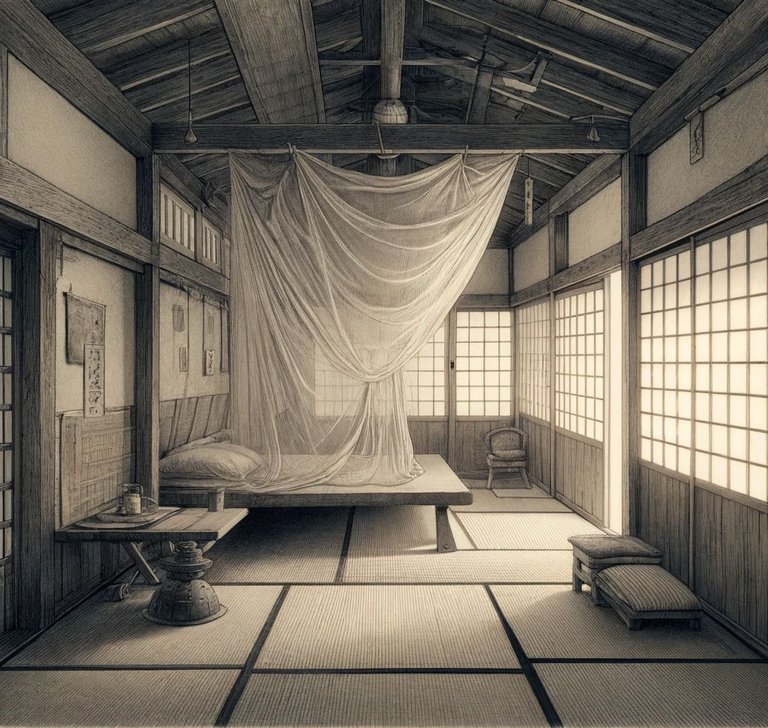Like most haiku poets back in the day, Issa didn't have a lot of money. Then, as now, art didn't pay so well. Issa usually embraced his poverty with humor, as he is doing here.
kaze fuku ya ana darake demo waga kachō
ragged, full of holes
my mosquito net
—Issa


Back in the day, the mosquito net was an essential item. Issa here is giving us a simple image: his mosquito net blowing back and forth in the breeze. Littered with holes and tears as it was, it was still a mosquito net, albeit likely not a very effective one. This was written in 1803, a handful of years before he married for the first time. Without a wife to sew up the holes for him, we can imagine he wasn't very good about doing it himself. He was always making jokes about his own laziness as well.
Making fun of himself or his circumstances was something Issa did often. What good is life if we can't laugh at ourselves, after all? Issa always kept that sense of humor, despite what life threw at him.
The kigo (season word) here is mosquito net, which is a kigo for all of summer.
❦
 |
David LaSpina is an American photographer and translator lost in Japan, trying to capture the beauty of this country one photo at a time and searching for the perfect haiku. He blogs here and at laspina.org. Write him on Twitter or Mastodon. |
That is, me! If you like this translation, feel free to use it. Just credit me. Also link here if you can. ↩